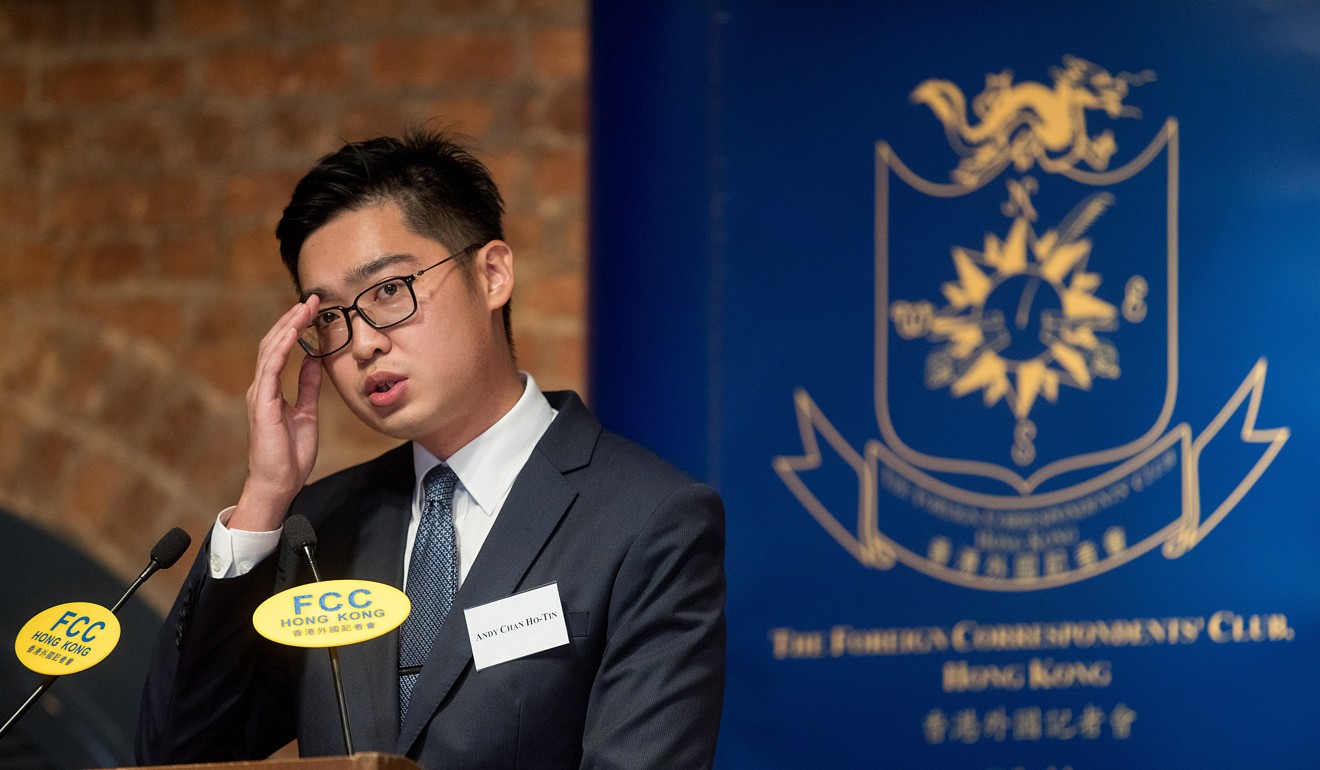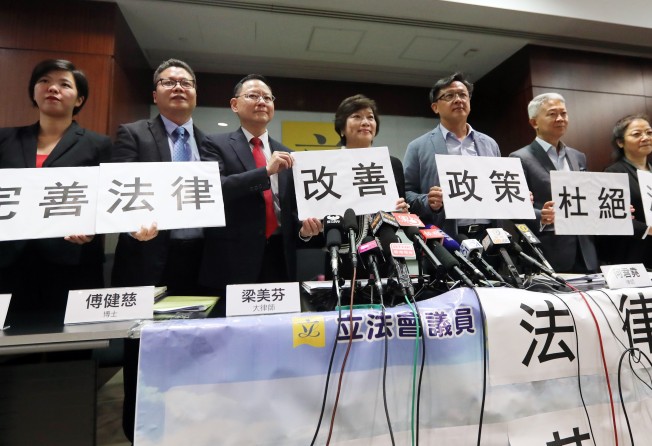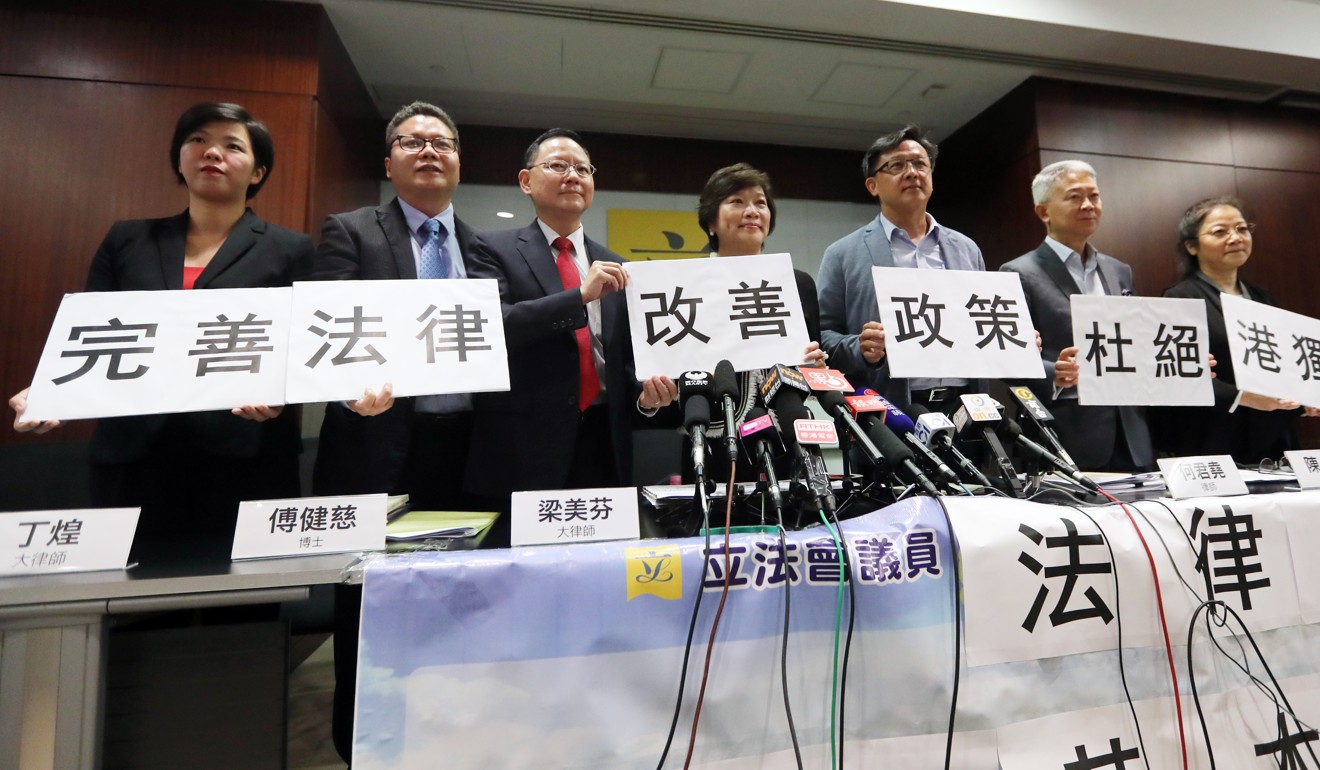
Pan-democrats should cut ties with ‘stupid’ Hong Kong separatists and support bid to enact national security law, group of conservative lawyers says
Member of Basic Law Committee, Priscilla Leung, says ‘sensible and moderate’ politicians must act on Article 23 before Beijing takes decision out of city’s hands

The “sensible” pan-democrat politicians in Hong Kong should steer clear of “the stupid force” of separatists and support calls for a long-overdue national security law before it is too late, a group of lawyers has said.
While Hong Kong is allowed to enact the law on its own – as stated in Article 23 of the city’s mini-constitution, the Basic Law – Priscilla Leung Mei-fun, who is a member of the Basic Law Committee, warned Beijing might lose patience if the city does not stop separatists calling for independence.
The calls from the conservative lawyers came days after the Foreign Correspondents’ Club (FCC) pressed ahead with a talk by Andy Chan Ho-tin, the convenor of Hong Kong National Party, despite Beijing’s protests.

“The saga has shown there is a lack of laws and clear policies in Hong Kong to regulate premises from offering separatists a platform [to promote their calls],” Leung said on Friday.
“If Hong Kong repeatedly has this kind of movement, or incident, it might get on the nerves of the central government. I really do not know how [much time] Beijing would give Hong Kong for the legislation of Article 23 – you are essentially giving up the chance to enact it yourself if you do not treasure the opportunity.”
Chan’s speech on Tuesday, in which he denounced China as “a threat to all free peoples in the world”, elicited immediate and strong condemnation from Beijing.
Zhang Xiaoming, director of the State Council’s Hong Kong and Macau Affairs Office, also dropped the strongest official warning yet on the city’s obligation to enact its national security law – a call which was echoed by Chief Executive Carrie Lam Cheng Yuet-ngor.
Leung, a Beijing-friendly lawmaker, said it was rare for the Ministry of Foreign Affairs to issue such a public statement on the city’s affairs, which reflected Beijing’s view that the FCC row was a “nation-to-nation” issue.
Instead of reiterating the stance that there was nothing illegal in calling for Hong Kong independence, she said “sensible and moderate” pan-democrats should cut ties with separatists, or risk ruining the city’s democratic progress.
Lawyer Elizabeth Yang Ling, one of the seven legal professionals who attended the press conference, said the government, as the owner of FCC’s premises in Central, should review the terms of the lease to determine whether the club has breached the contract, and consider terminating the deal.

Separately, Cheng Yiu-tong, a local delegate to the National People’s Congress, called on the government to look into the legal responsibility the FCC might bear for hosting Chan, but said it was hard to tell whether now was the right time to enact Article 23.
However, Democratic Party lawmaker Lam Cheuk-ting said Leung’s words were “threatening” and went against the Basic Law stipulation, which said the legislation of Article 23 was solely in the hands of Hongkongers.
“Does she mean that the central government would legislate it for us, or even extend its own national security law on Hong Kong soil if we do nothing?” he said.
“The Democratic Party also reaffirmed that Hong Kong is an inalienable part of China, but we do not think we should ban anyone who holds different opinions, especially when they take no concrete action. That’s freedom of speech.”
Lawmaker Claudia Mo Man-ching, the incoming convenor of the pro-democracy bloc, slammed the conservative for calling on the government to kick the FCC out of its premises, especially when the government had attempted to play down the row.
Terminating the lease would deal a huge blow to the city’s international reputation, she said, adding: “Perhaps the Beijing-loyalists are barking up at the wrong tree.”
Democratic Party chairman Wu Chi-wai also accused the pro-establishment bloc, in particular the city’s former leader Leung Chun-ying, of blowing up the saga to pave the way for the legislation of national security law.
Chan’s talk at the FCC, he argued, would have attracted little attention if Leung had not attacked the club for holding the event.